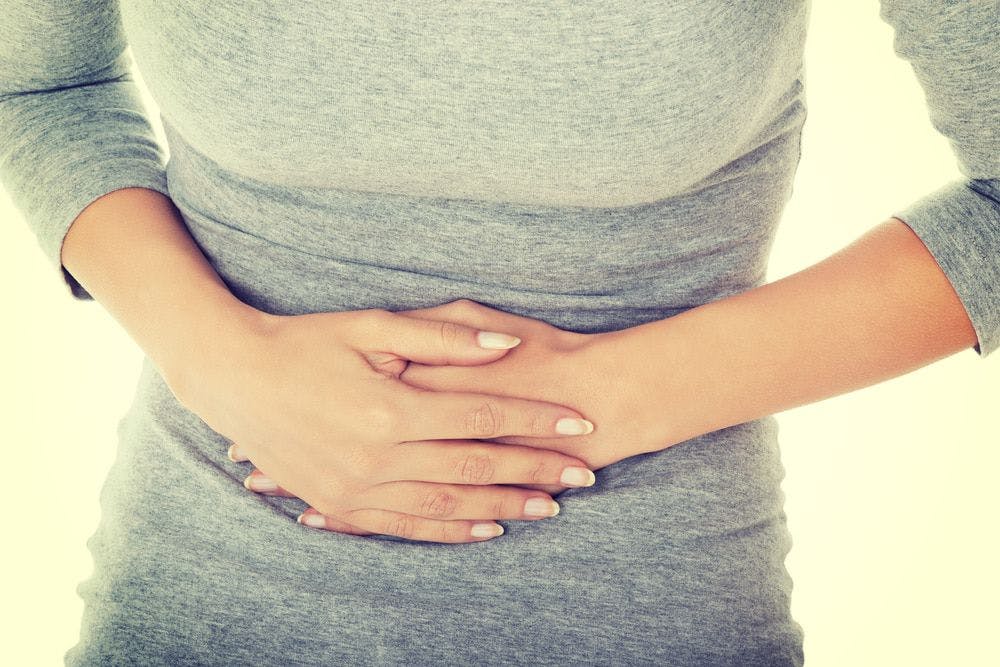
When it comes to making healthy choices, improving your digestion is one of the best things you can do for your wellbeing
The state of our digestive system impacts everything – from our skin to our mood. But how can we get to grips with our gut? Here we share our top tips for balancing your belly…
Uncover your microbiome
Great digestion starts with your microbiome (the unique collection of bacteria in your gut). In fact, studies have proven that working on this balance of good and bad bacteria can be an effective way of dealing with anxiety, along with improving conditions such as migraines.
Instead of using a generic probiotic supplement, a personalised approach to boosting your bacteria may be more effective. Investing in a testing kit will pinpoint what’s up with your gut; helping you tailor food choices and probiotics to the specific strains of bacteria you’re deficient in. These usually involve completing a poo sample and sending it off in the post (don’t worry, you’ll be given all the equipment, and your postie won’t have a clue!). Some kits can even give you an idea of what health conditions you’re at more risk of developing, simply by analysing these magic bacteria!
Train your brain
Is it possible to ‘think’ your gut healthier? Well, possibly. Zemedy is a new app that offers daily cognitive behavioural therapy (CBT) and gut directed hypnotherapy for patients with irritable bowel syndrome, and claims to improve symptoms for around 70% of IBS patients.

But does that mean conditions like IBS are simply all in the mind? Not at all! Dr Sammie Gill, a registered dietitian specialising in gut health, says: “The gut and brain constantly talk to one another, and how we feel impacts on how the gut behaves. There’s plenty of research showing the power of psychological therapies in improving IBS symptoms.”
The power of polyphenols
Enjoy a glass of red wine or a bar of chocolate of an evening? They’re not as bad for you as you think. A recent study has found those that enjoy red wine actually have more diverse gut bacteria. But why? Dr Riccardo Di Cuffa, founder of private GP service Your Doctor, says: “Foods such as dark chocolate, and drinks like red wine, all include a group of flavonoids called polyphenols, which provide gut bacteria with a vital energy source.” Don’t reach for a family-size bar of chocolate just yet though. “This isn’t a green light to consume large volumes of any of them! Moderation is still key,” Dr Di Cuffa adds.
Get your eight hours
There’s no point eating healthily by day, if you don’t take care of your body by night. Which means less binge-watching into the early hours, and more early nights.
Your digestion can actually impact the quality of your sleep – for example, studies have shown that those with inflammatory bowel disease (IBD) have poorer quality sleep even when they’re in remission. What’s more, it’s been found that treating those with poor sleep can potentially help treat their digestive symptoms, too. Do you really need another excuse for an early night?
The gut and brain constantly talk to one another, and how we feel impacts on how the gut behaves
The F factor
When it comes to your gut, make sure you have plenty of the three Fs in your diet: fibre, fat, and fermented foods!
Fibre is vital for our gut health, but the type of fibre you consume is equally important. Aim for a mix of soluble fibre (found in foods like bananas and oats, this can help soothe the gut and lower cholesterol) and insoluble fibre (found in leafy greens and wholegrains, and keeps our
bowels moving).
We might be conditioned to think that fat is the enemy, but when it comes to digestion, that couldn’t be further from the truth! We need healthy fats – such as the omega 3 found in wild fish – to help reduce inflammation in our guts.
And finally, don’t forget fermented foods! “These foods are rich in good healthy bacteria,” explains Dr Di Cuffa. “Natural live yoghurt, kefir, sauerkraut, and miso all contain bacteria that improve mineral absorption. In particular, yoghurt contains Lactobacilli bacteria, which are believed to inhibit the development of conditions such as IBS, joint pain, and type 2 diabetes.”
Stay hydrated
Forget pricey supplements, simply sipping plenty of water can be a simple place to start with your gut health mission. “Water helps the food we’ve eaten move along the gut more smoothly, so aim for 1.5 to 2 litres per day,” advises Dr Gill. Whatever your stomach niggle, water can help. “If you’re prone to constipation, not drinking enough can make it worse, while if you are experiencing a bout of diarrhoea, regular fluids are really important since you’re losing lots of water when you go to the toilet,” she adds. Bear in mind that fizzy drinks aren’t the best way to hydrate, since they can cause bloating.

Spot your triggers
It could be worth keeping a food diary to see if there’s a particular food that makes your gut unhappy. It’s recommended that this is done for a period of several weeks, along with logging your symptoms. You’ll then ideally work with a dietitian to pinpoint any foods to exclude, and then slowly reintroduce. Common intolerances are gluten and dairy, but it’s really important you don’t exclude these suddenly, as it can leave you vulnerable to nutritional deficiencies.
You can find a professional to help you improve your gut health on the Happiful family website, nutritionist-resource.co.uk

